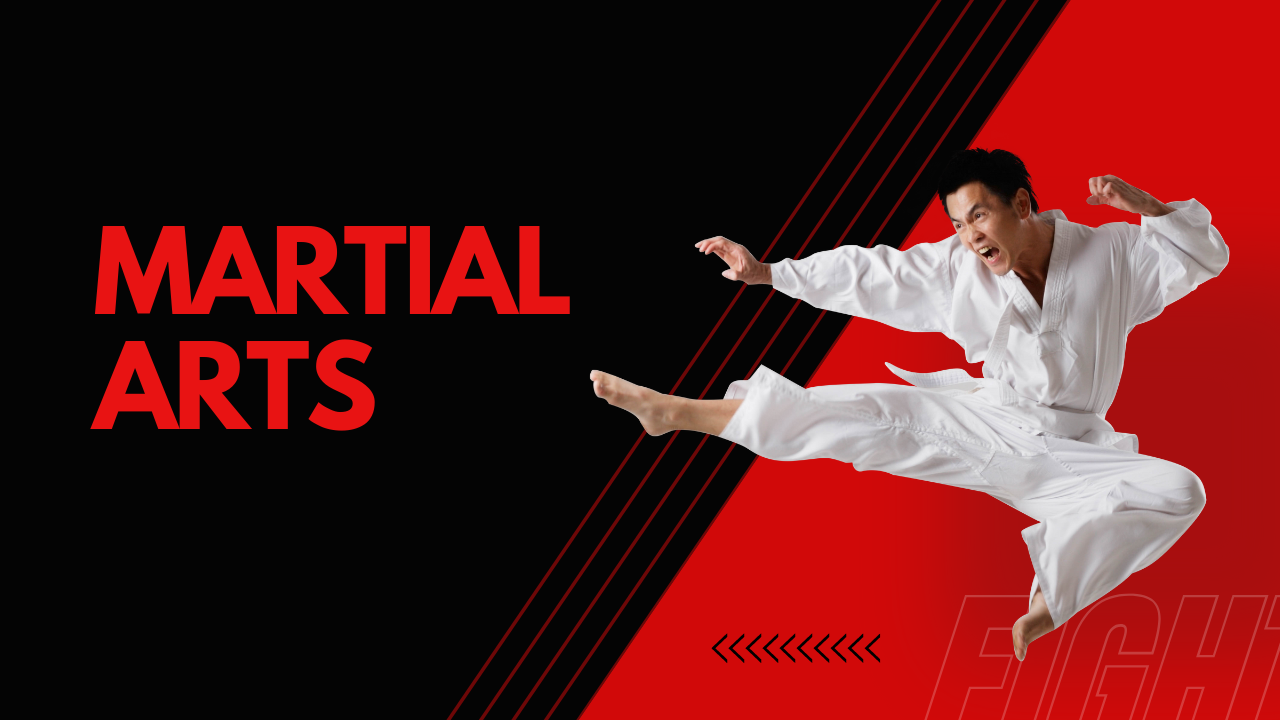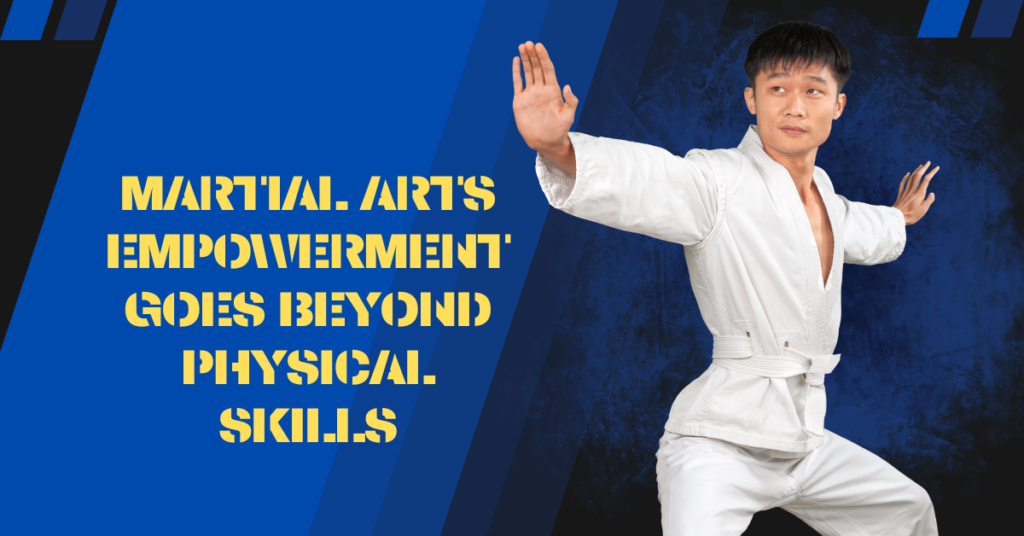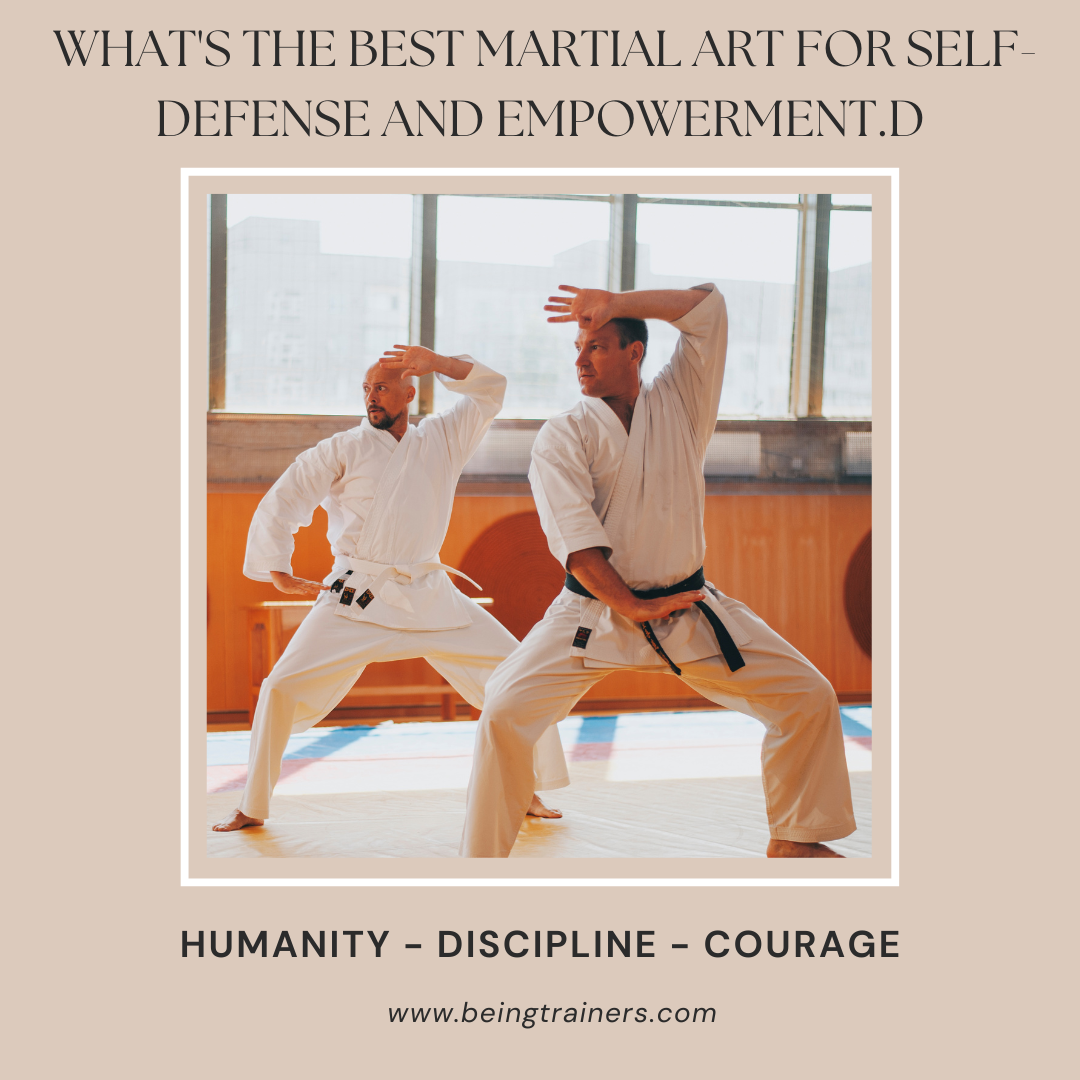
Introduction
Selecting a martial art becomes crucial in the pursuit of empowerment and self-defense, as it molds a person’s physical prowess, mental fortitude, and general wellbeing. The variety of martial arts, from Aikido to Krav Maga, provides people with a wide range of tools to experiment with. This blog has explored how different martial arts might be used in real-world situations, highlighting their special advantages for self-defense. Changing from one martial art to another, we have emphasized how these practices give people not just physical skills but also mental toughness and emotional strength.
Additionally, the investigation explores martial arts’ psychological and emotional advantages in addition to their physical benefits. Every martial art adds to a comprehensive sense of empowerment, ranging from self-control and self-assurance to resilience. The trip ends with a focus on the value of regular practice and choosing the best martial arts self-defense school, acknowledging that learning self-defense and empowerment is a lifelong, transforming process.
Krav Maga Is A Practical and Effective Art Form
The Israeli military created Krav Maga with an emphasis on practical situations. It is a good option for people who want to react to possible attacks quickly and effectively because of its emphasis on practical self-defense skills and instinctual movements.
Words used in transactions: Furthermore, Krav Maga’s versatility and simplicity add to its enormous success in self-defense instruction.
Jiu-Jitsu from Brazil focuses on ground defense mastery.
The focus of Brazilian Jiu-Jitsu (BJJ) is on submission holds and ground fighting. It works especially well for tiny people up against bigger opponents because it emphasizes technique and leverage over raw strength.
Words used in transactions: Furthermore, because BJJ focuses a lot on sparring, practitioners can test and hone their techniques in real-world scenarios.
Muay Thai is a Powerful Strike
Muay Thai, also referred to as the “Art of Eight Limbs,” strikes using the hands, feet, elbows, and knees. Being a well-known martial art for stand-up fighting, it’s a useful tool for self-defense.
Words used in transactions: Muay Thai’s emphasis on conditioning also improves physical fitness, which adds another level of empowerment to the practice.
Wing Chun Engage in Up-close Battle
Wing Chun is the perfect martial art for self-defense in small areas since it emphasizes close-quarters fighting and trapping tactics. It encourages rapid, effective movements to neutralize dangers.
Words used in transactions: Wing Chun is also a sensible option because of its emphasis on simultaneous attack and defense as well as economy of motion.
Taekwondo Is Known for Its Strong Kicks

Taekwondo is renowned for its powerful and explosive kicks. For individuals who prefer a martial art that is more striking-focused, it is a great option because it places a strong emphasis on speed, agility, and precision.
Words used in transactions: Beyond just physical prowess, Taekwondo cultivates discipline and mental focus, which further contributes to personal strength.
Judo Requires Using the Force of Your Opponent
Judo is a good form of self-defense without the need for physical strength because of its emphasis on throws and turning an opponent’s force against them. It works very well for deflecting aggressiveness.
Words used in transactions: Furthermore, Judo’s focus on timing and balance enables practitioners to defeat stronger opponents with deft execution.
Karate, Customary Self-Control
Tradition of Japanese martial arts are the foundation of karate, which provides a methodical approach to self-defense. It places a strong emphasis on strikes, blocks, and postures that build mental and physical toughness.
Words used in transactions: Additionally, the Karate kata, or set forms, help with mental concentration and muscular memory.
Aikido Is Non-Resistance and Harmony
Often translated as the “Way of Harmony,” aikido emphasizes rerouting an opponent’s energy instead of resisting it. For individuals looking for non-lethal self-defense, it’s a great option.
Words used in transactions: Aikido’s ideology also promotes a peaceful settlement approach, going beyond physical conflict.
Brazilian Jiu-Jitsu vs. Krav Maga: Which is the Better Fit?
It’s important for people choose between Brazilian Jiu-Jitsu and Krav Maga to take their body type, personal preferences, and specific self-defense objectives into account.
Words used in transactions: Selecting the ideal martial art is ultimately a personal choice based on needs and interests.
Martial Arts Empowerment Goes Beyond Physical Skills

While self-defense requires physical prowess, martial arts provide empowerment that extends beyond self-defense. The psychological and affective advantages are similarly noteworthy.
Words used in transactions: Additionally, learning martial arts fosters self-control, self-assurance, and resilience, all of which add to a comprehensive sense of empowerment..
Martial Arts’ Benefits for the Mind and Emotion
Discipline: Consistent training, devotion to values, and respect for peers and teachers are ways that martial arts teach discipline.
Confidence:
Gaining mastery over martial arts techniques and conquering obstacles cultivates self-assurance and faith in one’s own skills.
Resilience:
By forcing people to step outside of their comfort zones and supporting them in overcoming obstacles, martial arts teach resilience.
Transaction Words:
These psychological and emotional advantages also apply to other facets of life, fostering comprehensive personal development.
The Value of Relentless Instruction
Any martial art requires constant, focused training to become proficient. Frequent practice strengthens the mental and emotional components of empowerment in addition to improving physical skills.
Words used in transactions: Furthermore, one of the most important elements in optimizing the advantages of martial arts is the dedication to ongoing development by consistent practice..
Selecting the Best Martial Arts School
For training to be both successful and pleasant, choosing the correct martial arts academy is essential. Take into account elements including the instructor’s background, the academy environment, and how well the style fits your own objectives.
Words used in transactions: Making an informed choice regarding the best academy can also be aided by trial class attendance and referrals. Conclusion
In summary
, the search for the greatest martial art for empowerment and self-defense is a very personal one that is influenced by personal tastes, physical prowess, and overarching objectives. The wide range of martial arts, each with its own special methods and ideologies, provides a variety of options to meet a range of purposes.
Self-defense techniques such as Krav Maga, Brazilian Jiu-Jitsu, Muay Thai, Wing Chun, Taekwondo, Judo, Karate, and Aikido enable people to defend themselves in various scenarios. But the advantages go well beyond having certain physical abilities. Martial arts foster discipline, confidence, and resilience, creating a holistic sense of empowerment that transcends the realm of self-defense. The mental and emotional fortitude developed through consistent training contributes significantly to personal growth and well-being.
Selecting the appropriate martial arts school is essential to this life-changing experience. The total experience is shaped by the instructor’s experience, the academy’s atmosphere, and how well the martial art style aligns with each student’s goals.
In the end, learning martial arts for self-defense and empowerment is a path of self-discovery and personal improvement rather than merely a physical activity. Adopting the rich tapestry of martial arts puts people on a path that enhances their life with discipline, self-assurance, and a deep sense of inner strength—all while providing them with useful abilities.
FAQs on Choosing the Best Martial Art for Self-Defense and Empowerment
1. How can I decide which form of martial arts is best for me?
Take into account your individual preferences, physical prowess, and particular self-defense objectives. Try out some trial classes to get a feel for other techniques.
2. Are there any physical or age requirements to learn martial arts?
Most martial arts can be practiced by people of all ages and fitness levels. Speak with the instructors to identify a program that suits you.
3. Is it possible to transition between several martial arts forms?
Although it is feasible, changing trends necessitates adaptation. Before making such a choice, take your tastes and aims into consideration.
4. How much time does it take to master a martial art?
Although skill levels vary, regular training is crucial. Gradual progress should be anticipated with consistent practice.
5. What psychological and emotional advantages may I anticipate from martial arts training?
Beyond just improving physical prowess, martial arts foster self-control, self-assurance, resilience, and general personal development.
6. How can I pick the best martial arts school?
Take into account the instructor’s qualifications, the ambiance of the academy, and how well the martial art style fits your objectives.
7. Is learning martial arts just for self-defense?
No, martial arts provide mental, emotional, and physical empowerment in addition to its primary purpose of self-defense.
8. Is learning martial arts the only way to get in shape?
Yes, a lot of martial arts offer great fitness programs that combine cardiovascular, strength, and flexibility training.
These commonly asked questions provide more light on the factors to be taken into account while selecting a martial art for empowerment and self-defense.

